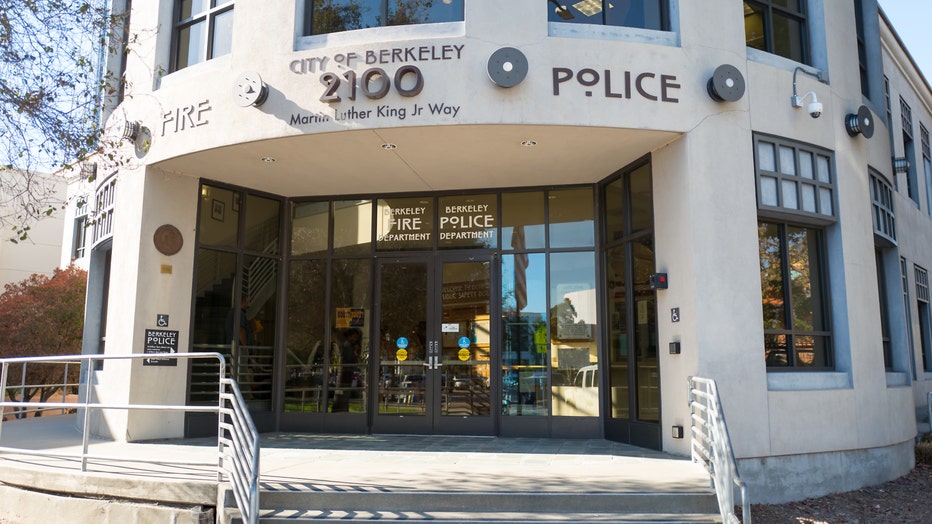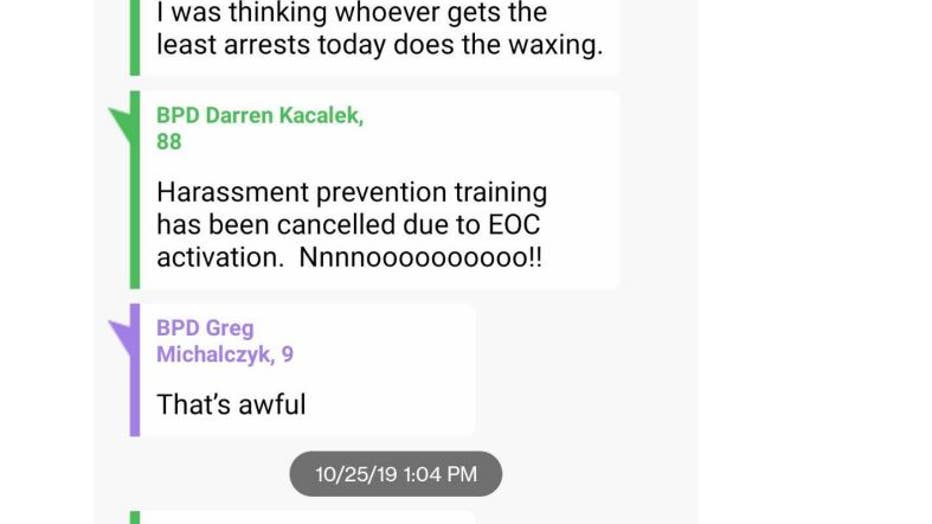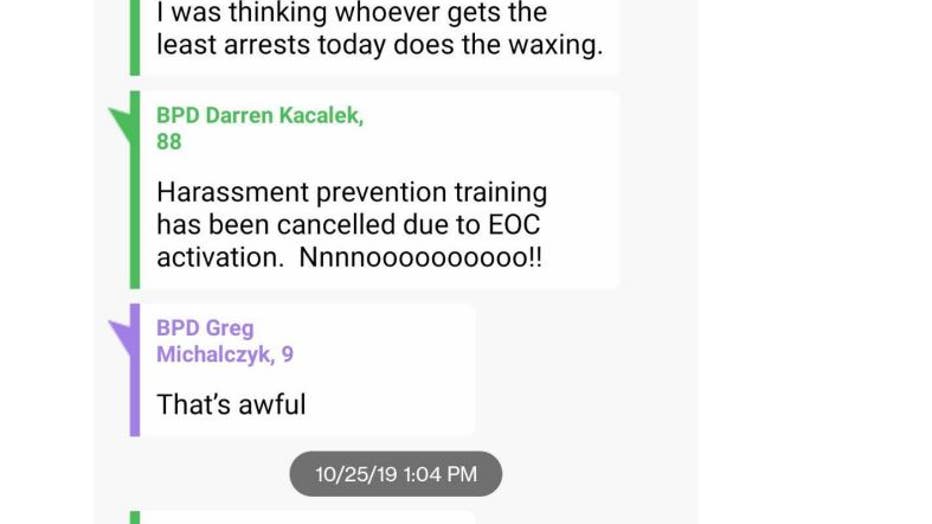Berkeley investigating police texts alleging arrest quotas of the homeless
Berkeley investigating police texts alleging arrest quotas of the homeless
The city of Berkeley has launched an outside investigation into leaked texts and allegations from an ousted police officer claiming the department's bike patrol unit was engaged in arrest quotas and a sergeant was sending anti-homeless texts.
BERKELEY, Calif. - The city of Berkeley has launched an outside investigation into leaked texts and allegations from an ousted police officer claiming the department's bike patrol unit was engaged in arrest quotas and a sergeant was sending anti-homeless texts.
City spokesman Matthai Chakko told KTVU on Tuesday in an email that the city manager plans to hire "an external investigator to verify and investigate any and all documentation and allegations arising from this complaint."
Chakko added that "these are very disturbing allegations, and we take them very seriously."
The allegations he was referring to were made public on Monday by Brian Hofer, executive director of the Oakland advocacy group, Secure Justice.
Secure Justice posted selective texts and emails collected by former Berkeley police officer Corey Shedoudy, who alleged the presence of an arrest quota program of homeless people for the Downtown Task Force Bike Patrol, of which he was a member in 2019 and 2020.
Arrest quotas are against the law in California. The city emphasized that Berkeley police do not have any arrest quotas.
"Arrest quotas have been held unconstitutional for a long time," Hofer said. "They lead to the practice of racial profiling and officers then begin to start targeting people to hit a certain number their superior is giving them."

FILE ART (Photo by Smith Collection/Gado/Getty Images)
And yet, Berkeley police have a "troubling past with regard to racial discrimination," Hofer said, and its present stop-data reports reveal that BPD is specifically targeting Black drivers even more egregiously than the Oakland Police Department.
Still, in an email to the city council on Nov. 10, Shedoudy alleged the quota was given at the direction of Sgt. Darren Kacalek, president of the Berkeley Police Association, which did not respond for comment. Kacalek also couldn't be reached for comment.
"DTF/Bike Force was ordered by Sgt. Kacalek to make 100 arrests per month, which was at the time more than the rest of the police department combined" Shedoudy wrote the city council on Nov. 10. "We were ordered to do so using questionable legal tactics that included stop and frisk, probation searches with no reasonable suspicion of a crime and a very loose interpretation of stay-away orders from UC Berkeley."
The hand-chosen snippets of text messages that Shedoudy released also painted Kacaleck as making derogatory comments about people of color and the unhoused.
For example, the texts released show that a person named Kacaleck complained that one news release didn't specifically say the suspect was Black and joked about a "new strain" of COVID that "wipes out the homeless pop."
The same person wrote that he wanted to increase the number of homeless arrests as a way to show effectiveness of policing.
"81 arrests! We can do 19 by Friday for sure," the person identified as Kacaleck wrote in a text from November 2019.
Kacalek also sent a text joking: "I was thinking whoever gets the least arrests today does the waxing."
In 2016, plaintiffs sued several Berkeley police officers, including Kacaleck, for using excessive force during the arrests of homeless people. However, in 2019, a judge ruled in favor of the police.
Civil rights attorney Jim Chanin said that even though Berkeley police may not have an official arrest quota, they have not implemented an "Early Intervention System," to identify problem officers with a history of racially disparate stops.
"If it had been implemented, it likely could have prevented, or at least limited, the scandals we are facing today," he said.

Shedoudy intimated in his email that he has "hundreds" more text messages, emails and other documents that he plans to release in the future.
Hofer said he was given this material by a trusted whistleblower and that he has not talked to Shedoudy himself.
In his email to the council, Shedoudy acknowledged to the city manager and other council members that he was terminated in August 2021, but he feels like he will win his job back.
Shedoudy did not say why the department is seeking to terminate him. Efforts to reach him at the same email he wrote the council were not returned on Tuesday.
The Berkeley Scanner reported that Shedoudy was fired because he intentionally collided into a car, citing anonymous sources.

City Manager Dee Williams-Ridley gave the mayor and council talking points to respond to Shedoudy's allegations.
In an email, she told them to say that her office is "aware of the seriousness of the matter and has been assured that the allegations will be investigated thoroughly."
Berkeley's mayor, however, didn't stick to those talking points.
"I am outraged by the news of these disturbing texts and a pattern of behavior by some officers of the Berkeley Police Department," Mayor Jesse Arreguin told KTVU in an email on Tuesday. "These actions are unacceptable and do not reflect our city, its values, or any standards of professional or constitutional policing.
"Racism and hate cannot be tolerated anywhere in our society, but it's simply incompatible with the profession of policing. When police exhibit explicit bias it undermines community trust in the fair administration of justice and jeopardizes accountability in cases that rely on their testimony."
The Berkeley City Council is poised to appoint the city’s next police chief on Tuesday, but the text-message revelation is now threatening to possibly disrupt that.
Shedoudy claims that Jennifer Louis, the current interim chief, knew what was going on regarding the arrest quotas. Louis was a captain of a different division at the time of the alleged incidents, but the bike unit was not in her chain of command.
Nathan Mizell, the vice chair of Berkeley’s Police Accountability Board, issued a statement Monday calling for the city council to postpone Louis’ appointment until his agency has investigated them.
"Hastily confirming the interim chief now would severely undermine public confidence in the independent oversight that Berkeley’s citizens voted for in establishing the Police Accountability Board," Mizell wrote in a statement. "There is no conscionable way for the confirmation process to go forward."
Louis also chimed in to the text revelations, saying she had no idea what was going on and if she did, she would have investigated it.
In an email to KTVU on Tuesday, Louis said she first learned of these arrest quota allegations last week and that none of these "alleged incidents occurred underneath my supervision."
Still, she acknowledged, that these allegations "are extremely concerning, and they deserve to be investigated thoroughly."

